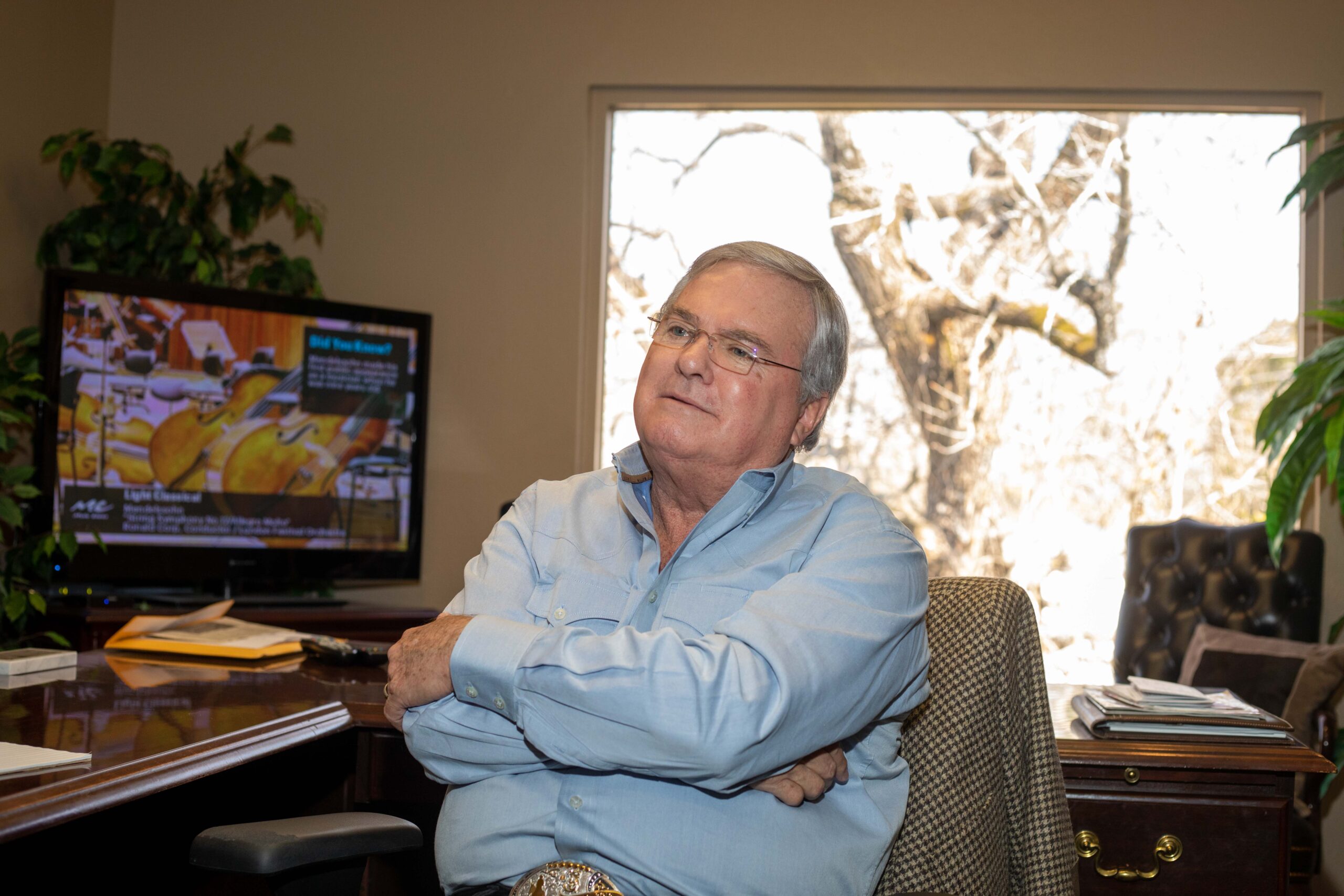
While earning a degree in journalism from Drake University in his hometown of Des Moines, Iowa, Jack worked two jobs to pay his college expenses. By day, he sold men’s clothing; at night he worked in the field of broadcast journalism, first as a television correspondent for an NBC affiliate and later at a radio station. “I had the luxury of working in that field while I was still in school,” he says. “By the time I graduated, I had figured out I didn’t want to do that for the rest of my life.”
Jack had always thought he would one day become a lawyer, so he took the LSAT, did well, then scheduled an interview with the dean of Drake University Law School—the final step before admittance. But something unexpected happened: the dean told Jack that first-year law students were not allowed to work. Jack remembers thinking, “That’s a problem.” He could not afford to attend law school unless he worked. His dream of attending law school ended that day, but he does not have regrets. “God gives us direction in our lives. Things happen for a reason,” he says. “Later I went back to graduate school, but not immediately, because I couldn’t afford it.”
Jack then reassessed his options. “I interviewed with just about anybody who would talk to me through campus placement,” he says. He was offered five jobs, but only three interested him. All were in different fields, and all offered management training programs. Although the job with Sears was the lowest paying of the three, it’s the one Jack took. “I figured if I really busted my tail, I could advance quite rapidly,” he says.
And he did. He worked for Sears for ten years, living all over the country and becoming a group merchandise manager for Chicago, the company’s largest market. He ultimately spent 19 years in corporate retailing, working in upper management for companies like Target and County Seat. During scarcely more than three years as vice president of stores for Waldenbooks, he helped the company increase from 600 stores to more than 950. He had found his niche in retail, but he wasn’t finished yet. While Jack was in his late 30s, he’d set a goal–to be at the helm of a large, specialty store chain before he turned 40. Soon he became the president of Genesco’s Retail Group—parent company to several shoe and accessory chains.
If he counts the time he spent selling men’s clothing while he was in college, Jack has been in the retail business since 1959. He has contributed to the opening of more than 850 retail stores. “I will get it right one of these days,” he jokes. Joking aside, Jack is known for being an experienced, successful retailer, and his philosophy of what makes a store successful is simple. “It has all come down to one word,” he says. “Inventory–the right goods, the right place, the right time, the right quantity, and the right price. If you do these things right in retail, you are going to be successful. If you do even one of them wrong, the chances of being successful diminish.”
Over the years, Jack has also learned a lot about managing people. He tries to hire the smartest people he can find and gives them leeway when they apply their expertise and abilities to their jobs. Over the years, he has read many books about business. One that resonated with him was Good to Great by Jim Collins. “Get the right people on the bus, get them in the right seats on the bus, and ask the people on the bus where the bus should go. Empower them,” he summarizes. “I try to hire the smartest people I can find. The dumbest people are the people who just want to do what I tell them. People who have been in the same job at a company for twenty years—don’t you think they know more about it than I do?”
Jack also enjoyed reading Start with Why by Simon Sinek. He recalls taking over as president at Genesco, “I immediately began to change things, and I didn’t take the time to ask ‘why.’ I didn’t take the time to find out why things were the way they were before I changed them. It was a mistake. Things don’t happen by accident. There is a reason why companies do things or why people do things or why they make certain decisions along the way. Unless you find out why they did those things, your change or new ‘supposed’ solution is going to be flat-out wrong.” Over the years, he has distilled his business philosophy down to three sentences: “Always ask why. Treat each other with respect, not only as individuals, but for the knowledge they bring to the table. Practice the principle of body, mind, and spirit.”
Jack borrowed the “body, mind and spirit” trio from the YMCA. His first job was cleaning out locker rooms at his local Y so he could go to camp on a scholarship. “I was twelve years old,” he says. “The YMCA was a big part of my life for many, many, many years. I discovered Jesus Christ at the YMCA. For many years, the Y was virtually my church.
“I believe in body, mind, and spirit—the three pillars on which the Y was built. I believe those are the pillars of your life. Take care of your body and don’t abuse it. Keep your mind constantly active. The spirit—you believe in the Lord. Your spirit is constantly with you. When I was about 12 or 13, I was one of those kids on the fence that could go either way. I credit the Y for keeping me on the right side of the fence.” To give back, Jack has raised over $35 million for the YMCA over his lifetime.
Jack has spent the latter part of his career growing and selling retail businesses. His first foray into this enterprise was in 1984, when he co-founded Eye Care Centers of America (now Visionworks). He took the company public before selling it to Sears in 1987 He has acquired and sold several other businesses, including Baskins (which began in Trinity, and had locations in Conroe and Huntsville. His move to Conroe coincided with this acquisition.). He spearheaded the store’s transition from more of a general department store to exclusively a western store, growing the chain from 15 to 31 stores before selling it to Boot Barn. During that time, he authored the chain’s motto–Every guest, every store, every day. “A chain has an obligation to deliver a consistent experience because your customers shop more than one of your stores,” he says. “They don’t expect something entirely different when they go from one to another.” Some stores can achieve excellence sometimes, he says, but “every guest, every store, every day is difficult.”
Along the way, Jack has developed his own definition of an effective leader. “I have interviewed many potential leaders, vice presidents and above, and surprisingly, the question many of them have stumbled over is ‘give me the definition of leadership.’ To me it’s a very simple answer–a leader is someone who brings out the best in others,” he says.
Jack currently travels to Montana one week every month as CEO of Montana Silversmiths, a company he and four other partners purchased in 2016. There, he likes to conduct what he calls “Uncle Jack talks.” “When I go to Montana, I almost always call six or eight people up to the conference room. They have different jobs in the operation—some from the factory, some from the office. I talk to them about what they know and what they would do differently. I tell them, ‘You are now the CEO of this business. What are you going to do differently?’ Some of them stumble with that. Some of them come up with some good ideas.”
When he is not acquiring, growing, or selling businesses with Motivity Capital Partners, LLC, Jack enjoys golfing, reading—both novels and books about business—and spending time with his wife Delyce, whom he married in 2012. One day, he says, he might write a book. Jack is also the proud father of a son and a daughter, and is a grandfather of three. Whether he is wearing his business hat or his family hat, however, Jack is the same person. “You can’t be one way personally and another way professionally,” he says. “You are what you are.”

Postcards Magazine
936-293-1188
PO Box 690
Huntsville, TX 77342
